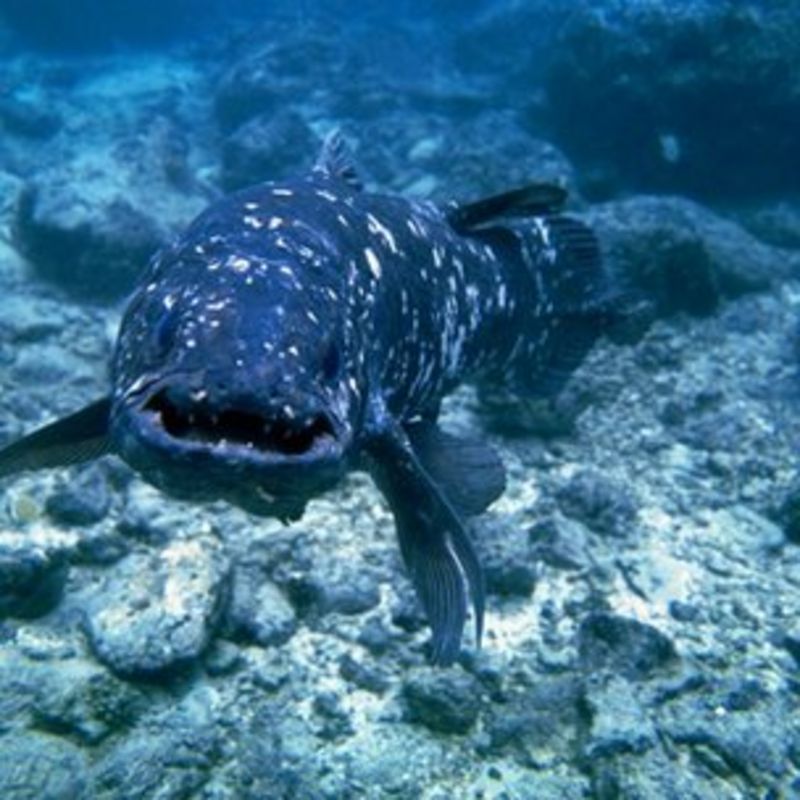Millennials? More like GenX. We’ve been eating out of microwaved tupperware since the sixties.
So have the millennials who were breast fed.
And formula fed
Mmmm, tasty math.
The worst part: postpartum women have lower levels of microplastics than other adults.
So you’re saying the baby took some of the plastic out of them, that’s horribly depressing at least they got 10 to 15 point IQ boost in return
Might be that. Although your body goes into absolute overdrive during pregnancy, and it’s not beyond the realms of possibility that some of the immune system reactions that kick in manage to eject some level of plastic microparticulates
Seems Like something people should be definitely looking into to find out why, with the state of science in America It’s probably not going to be here
I’ve thought more about it. I bet there’s fucking loads in the placenta.
That was my question too, I wonder if there is a reliable way to measure where it all went, or if it’s just diluted in the increased blood volume.
There’s also the possibility that with are more careful with their intake during pregnancy, but that could be controlled for in survey data.
Most likely its the same reason blood donation lowers microplastic levels in blood. Production of new cells that aren’t tainted with it. A woman’s blood volume increases by 40% during pregnancy. Of course ill freely admit thats just a hypothesis and you’re probably right, there would be benefit into studying it.
I was reading somewhere you can lower the level of PFAS in your blood by donating it.
It looks like the cumulative total of plastics produced by the 80’s was around 2-3
trillionbillion tons, whereas now it’s probably more like 20-30B.
https://ourworldindata.org/grapher/exports/global-plastics-production.png
Yeah and also for Gen X, Gen Z, Gen Alpha. We all still alive and everybody gets microplastic in their balls and brains. Its for all ages
Right? Haha 😂 Oh did we suddenly clean up the entire Earth from free roaming microplastics?
why the alpabet suddenly changes after Z? it should either be “omega & alpha” or “z & a”
Same reason we started with X, millennials actually got a name, and then went back to Z. Somebody with a head full of lead came up with it.
Millenials are also called Gen Y. Millenials just happens to have sticked more. And Gen Z is also called Zoomers.
Well zoomer comes from the z. Does it not?
It also comes from ‘boomer’, some names tend to stick.
brain full of lead and microplastic
They’re just place holders until the generation gets a shared experience to refer to. Millennials saw the millennium. Boomers were products of the baby boom but they also saw their economy boom. Gen X are missing, their letter was fitting.
My prediction is one of them will become gen algorithm, as they never knew a time when their media wasn’t decided for them. Maybe, gen android, few of them know how to use a file system after Chromebooks became ubiquitous. Or they’ll be the second greatest generation due to ww3. This stuff is entirely unpredictable.
GenX are also known as the invisible or forgotten generation, for the same reason.
What name does GenZ get? Born just in time to be power users, born too late to have any power to stop the enshitification. Same non-existent economic prospects as GenX.
They really aren’t power users though. Tech is a) generally more reliable and b) so locked-down that so many young people never learned how to troubleshoot
The earlier half of GenZ typically grew up with mass adoption of computers and phones all over the place so we got to learn how to fix XP every 5 minutes and get cracked games working.
Gen Z is already named “Zoomers”, but it’s not sticking as much as “Gen Z”.
I dunno, the second silent generation? Born into hard times, don’t know any better. Defined by their fiscally conservative ways and “none of my business” outlook?
They haven’t been too silent though, and more power to 'em. The un-silent generation? Seems a bit disrespectful to riff off of their great/grandparents though.
Boomers were products of the baby boom but they also saw their economy boom.
I though boomers were the producers of the baby boom
No, the products. World War 2 ended in 1945, and then EVERYBODY FUCKED and 80 years later we’re still cleaning up the mess.
Maybe. Their generation starts 1946 so I thought they were the product. One way or the other they are involved in a baby boom.
You are correct. After WW2 ended there was a “boom” of babies being born.
Generation Omega sounds like some real dystopian plot
Waiting for uprising of the Sigma.
Or a 1970s political thriller.
Honestly I don’t think we’re socially responsible enough to end something like lead poisoning these days.
Imagine trying to stop the hole in the ozone today. We’d have people spraying CFCs in the air just to spite the effort.
As someone just old enough to remember, we did have that with CFCs. Might not have been super mainstream, and nobody who would have done it out of spite really had the disposable income to actually do it.
I grew up in a Fundamentalist Christian “cult” and I remember the adults around me “joking” about it all the time. I remember a Missionary to northern Canada visiting our church (in rural America) to try to raise support talking about the temperatures and joking that it’s so cold that he wanted to stand outside with an aerosol can in each hand to try to bring on some global warming, and that getting a laugh from the congregation. You might think that maybe it was a “harmless” joke that maybe as a child I didn’t pick up on the sarcasm, but there were absolutely adults there who fully believed that there was nothing humans could do to damage the earth, because God takes care of it. “And how dare the government and these evolutionists try to tell us how to live.”
for the past few months ive started to think we’re like a couple years away from putting lead back in the gasoline
Trump deregulating gas and paint to put lead back in both would be so unsurprising it won’t even garner a reaction from me.
I’m all with you. But it feels like they did already.
deleted by creator
Someone will call not wanting lead poisoning woke and that will be that.
There’s actually a lot of work going into documenting and replacing lead service lines in the US. EPA required every state to make sure every waterworks submitted an inventory by last October, with grant money through the Bipartisan Infrastructure Law to pay for it.
Is plastic really better? PVC, ABS,polyethylene and the rest get brittle after some time depending on conditions. All the degradation byproducts are in the water
If it was more in the zeitgeist, kids would be huffing it on tiktok.
You’d have people saying they like the lead and deliberately putting more of it in. Pussy-ass liberals trying to take their god given lead away…
deleted by creator
Bold of you to think that the microplastic is going to go away after one generation…
Who said that? Lead poisoning is still rampant in some communities.
I think the question is, why are you bringing up millennials when the issue of microplastics did not start with them, nor will it end with them.
I mean most others will skip out on the toothpaste variant, but yeah, it’s out there like that kraftwerk song.
The pipes in the US still contain plenty of lead. Also, Covid brain damage. Tons of it.
Most lead intoxication in boomers comes from leaded gasoline, lead in other presentations is less bio-available
Except that microplastics have been a major problematic thing since basically plastic become a popular thing, we just didn’t know it yet back then. It’s not like millenials invented plastic or popularized its use.
The amount of it in our environment has been ever increasing though. There’s more of it in the oceans, the soil, the rivers, the plants. The whole food chain and ecosystems are contaminated more than ever before.
At what point does it become macroplastic? kiloplastic for the Europeans.
Microplastics cause neurological damage and anti social violent behavior?
We don’t know about the longer term consequences yet, just like we didn’t about lead.
Not saying it’s a definite but I wouldn’t be surprised.
No, people knew lead was poisonous even back near Roman days. Though just like how humans constantly do stupid things for some benefit, they kept using it as a sweetener for ages.
Also mercury in relation to, “as mad as a hatter”. It’s just mercury was very good for the job.
To play devil’s advocate, we always knew lead was toxic, but we didn’t know the only healthy dose was 0
Yes, but plastic is a very new invention and a lot less studied than something like Pb or Hg, which are natural elements.
Natural in no way what so ever should imply more healthy. Especially in the context of lead and mercury.
In a similar vein, asbestos is “all natural”, especially compared to fiber glass and foam, but it’s still unhealthy as fuck.
Not sure where I said natural = better. All I said was natural things are generally more studied because they existed for lot longer.
It’s existed long enough that serious effects would’ve been obvious by now. Multiple generations have already passed. Multiple. It is already clearly not as serious as lead or mercury regardless of what effects are found.
Plastic has been around for 80 years. Shouldn’t we know something by now
If it was going to be as bad as fearmongers want it to be, absolutely.
But we know plastic is inert and we knew about lead.
plastic is inert
wat? In no way is it inert.
We are just beginning to understand how much the chemical Imbalances that lead to depression, anxiety, and other mental health disorders originate in the digestive tract and how microplastics from food may disrupt the processing of these chemicals.
I don’t think the impacts of microplastics are quite as catastrophic, they can’t be or we would already know.
Which isn’t to say they aren’t bad just damn lead is realllly bad.
The concentration of them is rising exponentially, that’s the part that terrifies me.
It’s possible we just haven’t crossed a threshold yet.
My non-professional guess is that microplastics will eventually sterilize us by disrupting our sperm’s ability to function properly. Only the wealthy can afford the medical procedures to bypass this.
Maybe kids will need to be carefully sheltered from plastics until they are old enough to freeze their sperm.
this reads like the next step is to force them to freeze theirs
No, this will likely just be for the rich.
It’ll end up blocking vital neurotransmitters leaving us zombified and giving us an insatiable craving for brains
'Twould be sweet irony and a blessing for the earth.
Although the best method for removing it I’ve found is donating plasma (PFAs down 30% in 6 months of regular donation, the hope is nanoplastics are also removed…) so it might be the poors (in USA) and generous that get to have kids, so that’s nice…
I wonder what our neurosises will be.
Depression, I would say. Same as how boomers are labeled as uncaring and sociopathic because of lead.
The depression is a natural byproduct of civilization. We’re not supposed to sit in concrete boxes and do meaningless tasks for survival. It makes us sad.
The sociopath part, I think, is likely because they grew up in the easiest time in history.
As an Elder Millenial/Xennial I was lucky enough to make it to adulthood just before it got complicated. Unfortunately we’re talking months.
Samesies.
I think it’s more physiological. Since microplastics are ingested maybe it’s related to the rise in oral and rectal cancers.
Yeah, but the nanoplastics get past the BBB (Blood Brain Barrier), what’s it, a plastic spoon in every human brain? Enough for some psych effects I guess. Oh, there’s 27 million tonnes of nanoplastics spread across just the top layer of the temperate to subtropical North Atlantic
Shit’s pervasive and in your brain.
Everyone has microplastics, even newborn babies, and we have no sign of decrease in its use.
We must become one with the plastic. It’s the only way.
Don’t forget about PFAS!
I’m crazy. Mark My Words. In 20 years, we’ll have so many microbes capable of consuming plastic people will be bitching about their packages not being able to effectively protect their goods from spoiling. The goldfish has spoken.
I’ve run across at least three separate articles now of researchers from across the world discovering plastic eating bacteria in the wild. Short plastic. Its days are numbered.
Based solely on your comment, I’m looking forward to watching a scene where Christian Bale goes around Wall Street collecting mugs in The Big Short 2: Polymer Boogaloo.
Every generation alive has microplastics in them
and probably will for at least a few generations unless we can do some major filtering of all mediums
And literally nothing came of it, this whole thing is fear mongering and political theater.
Luckily, for the younger generations, we’ll probably just get cancer instead of becoming massive malleable assholes
OP, you are in for a seriously rough time if you think containing micro plastics is as simple as removing lead from gasoline and paint.
Nobody said it would be.
















